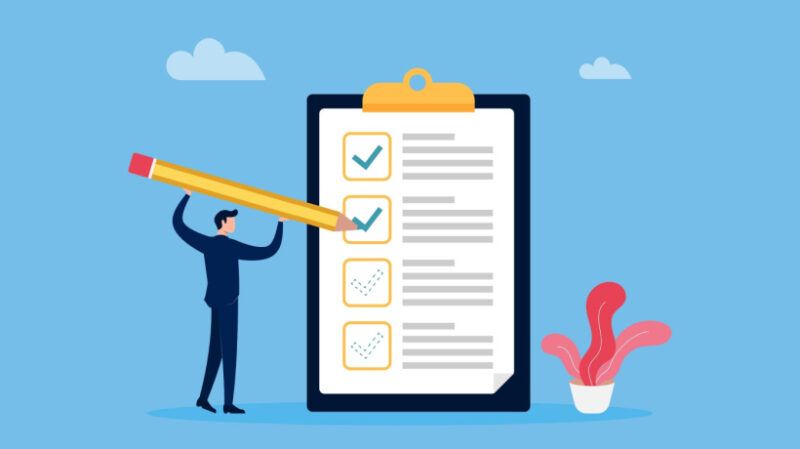
Examples Of Personalized Learning To Engage Gen Z Employees
The time has come for a new generation of employees to enter the workforce. The versatile, diverse, and tech-savvy Generation Z has caused many businesses to turn to training programs based on personalized learning. Although the first steps of designing such an employee training course are self-explanatory, such as defining learning objectives and choosing a learning management platform, organizations usually get stumped when having to choose specific activities that will promote their goals. For this reason, we have put together 8 personalized learning activities that will help you make the most of your training while engaging younger employees.
8 Personalized Learning Activities To Include In Your Training Program
1. Setting Individual Goals
We can’t begin to discuss personalized learning if there is no variety in your learning goals. Not all employees have the same knowledge gaps or aspirations about their professional development. This means that you must make the time to guide each of your employees, especially those in the first steps of their career, to select a learning path that best serves their personal interests and goals. This will also help you improve engagement with your training material.
2. Mentoring
Pairing a Gen Z employee with a more seasoned colleague can be greatly beneficial for their progress and integration into the company. Specifically, the newest addition can use the help of their experienced teammate to figure out their position in the organization, identify their weaknesses and goals for the future, as well as get an in-depth introduction to the way things work. At the same time, this interaction can make established employees more open-minded and help them change deep-rooted beliefs.
3. Cross-Training
The challenges of the previous years have shown us that agility is of utmost importance. Gen Z employees themselves are well aware that they shouldn’t focus on set career paths but “collect” a variety of skills that will allow them to be flexible in the future. Support your employees’ desire for learning by engaging them in cross-training activities. Allow them to collaborate with colleagues from different departments so that they gain a deeper understanding of the processes and workflows within the company. This will improve collaboration and camaraderie among your staff.
4. Experiential Learning Activities
Hands-on practice is a must-have activity in your personalized learning program, as it can produce remarkable learning results for your employees. By practicing in real-life conditions, employees can learn new skills faster and decrease the number of on-the-job mistakes. However, it’s not always possible for organizations to implement hands-on employee training without interfering with daily operations. This is where technology can be combined with experiential learning so that you can recreate real-life scenarios with the help of immersive learning. Some tools that could be used for this purpose include 360 videos, AR or VR, simulations, and serious games.
5. Learning Through Videos
The love that Gen Z has for videos is more than evident. The large number of video-based social platforms they use is your sign to utilize storytelling videos to complement your training material. Videos make complex concepts more digestible to learners, increase knowledge retention, and the better they are, the more engagement they drive. Especially for your Gen Z employees—who are used to snappy, high-quality content—you should consider hiring professionals to ensure the result is captivating and short enough to match their dwindling attention spans.
6. Gamification
How could we not include gamification activities in a training program designed for a generation of gamers? Gen Z employees are familiar with game-based features such as mini-games, leaderboards, and badges, which means that they will be particularly easy to incorporate into your training program. Gathering points to complete achievements that they can then share with their colleagues will give your employees an extra boost of motivation to see their training through. In addition, gamification elements help maintain a digital archive of your employee’s learning journey, which they can use to keep track of their progress.
7. Exchanging Feedback
Taking on a significant amount of responsibility over your learning journey requires a constant and honest exchange of feedback. Your employees need to be aware of their progress and remaining knowledge gaps so that they can take the necessary steps moving forward. Feedback can and should come from supervisors, mentors, team members, or even colleagues from different departments. Maintaining an open line of communication and constructive feedback allows employees to identify bad habits, reinforce good ones, and support their development as efficiently as possible.
8. Self-Assessments
A final personalized learning activity your employee training program must include is ways for learners to keep track of their progress. Of course, employees can benefit from external feedback, but it’s also crucial to take the time to reflect on what they have achieved and what more is left. This process will give your employees a deeper understanding of their strengths and weaknesses as well as the purpose of training and its correlation to their goals. As a result, they will be more motivated to keep going and assume greater accountability for their performance.
Conclusion
Creating a training program that is suitable for the unique needs of Gen Z employees is crucial for the success of your organization. And, if you remember to view your employees as individuals and not as a whole, you will achieve your goals with much more ease. In addition, the contribution of technology in personalized learning activities should not be overlooked, as it can engage your employees, ensure accessibility, and help simulate training in real-world situations.
